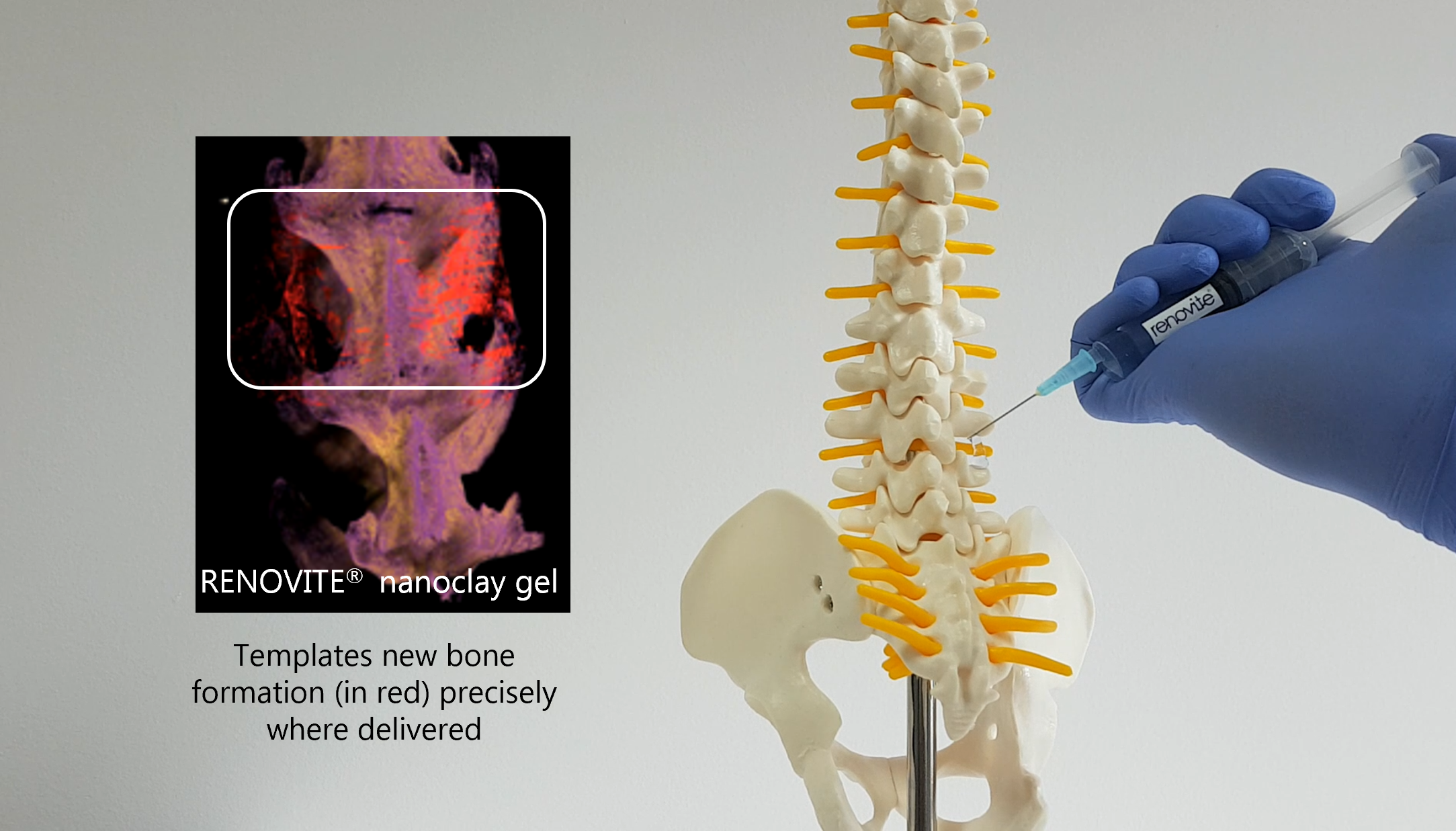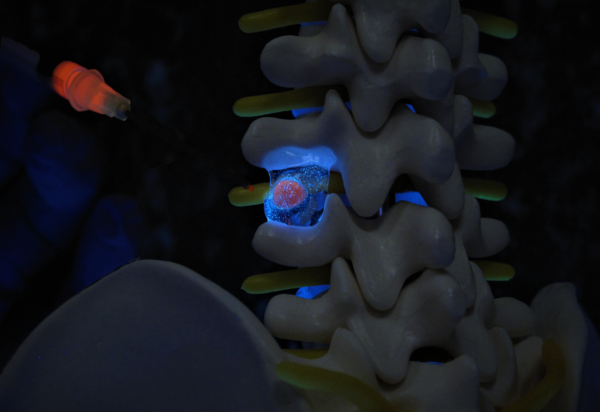Renovos has been awarded a £692,472 Biomedical Catalyst grant from Innovate UK, the UK’s innovation agency*. Innovate UK funds businesses to accelerate promising innovations towards commercially successful products, in specific areas of interest that promote economic growth.
Musculoskeletal conditions are the leading contributor to disability worldwide, with the most common and disabling conditions such as arthritis, back and neck pain, fractures and injuries. Current bone healing agents are poorly localised and rely on very high doses which have been associated with some dangerous side effects such as excess bone growth outside of the skeleton, inflammation leading to tissue swelling and sometimes nerve damage when used in the spine.
Renovos provides a novel solution that can address the current limitations of localising bone agents/biologic factors at the site of repair, improving their safety and efficacy. RENOVITE® is injectable and enables the use of bone-healing agents in a more precise, localised manner, and – thanks to strong retention – at a significantly reduced dose. Renovos’ compelling pre-clinical data shows that these agents are only released upon contact with regenerating cells, so they can enhance healing in a more targeted manner to improve outcomes with greater safety, efficacy and at a lower cost. The project “RENOVITE® – regenerative nanoclay for orthobiologic applications” will deliver further pre-clinical development in models aligned with clinical applications and accelerate the regulatory path.
Agnieszka Janeczek, CEO of Renovos Biologics said: “We are thrilled that our RENOVITE® nanoclay gel technology has once again been recognised by the Innovate UK experts. As pioneers of nanoclay gels for tissue regeneration, we are excited about this funding and the progress in development it will allow us to achieve to get closer to the clinic.”
Renovos ultimately anticipates its products based on the RENOVITE® platform will provide novel solutions for bone fusion procedures and difficult to treat fractures, benefiting the increasingly active younger demographics, requiring tissue regeneration, as well as the progressively ageing population.
If you are interested in supporting Renovos’ vision, please get in touch.
* Innovate UK drives productivity and economic growth by supporting businesses to develop and realise the potential of new ideas. We connect businesses to the partners, customers and investors that can help them turn ideas into commercially successful products and services and business growth. We fund business and research collaborations to accelerate innovation and drive business investment into R&D. Our support is available to businesses across all economic sectors, value chains and UK regions. Innovate UK is part of UK Research and Innovation. For more information visit www.innovateuk.ukri.org



